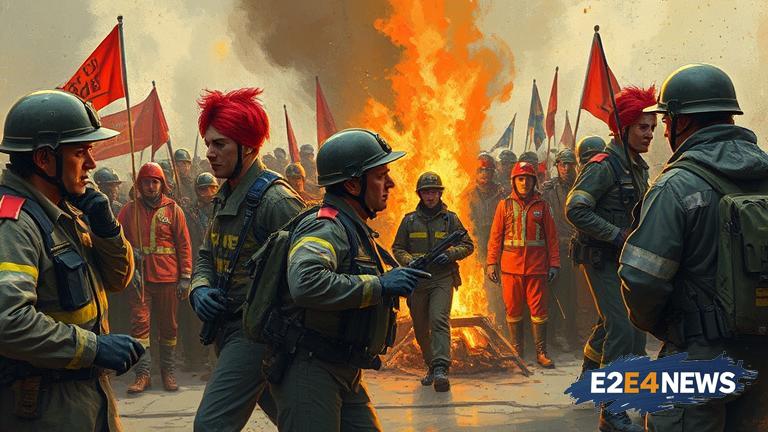The UK government has decided to launch an inquiry into the infamous Battle of Orgreave, which took place on June 18, 1984, during the miner’s strike. The battle was a violent confrontation between police and miners in Orgreave, South Yorkshire, and it remains a contentious issue to this day. The inquiry, which is expected to start soon, will examine the events leading up to the battle and the subsequent police response. The decision to hold an inquiry has been welcomed by many, including the families of miners who were injured or arrested during the battle. The miner’s strike, which lasted from 1984 to 1985, was a major industrial dispute that pitted the National Union of Mineworkers (NUM) against the National Coal Board (NCB) and the Conservative government of Prime Minister Margaret Thatcher. The strike was sparked by plans to close unprofitable coal mines, which would have resulted in the loss of thousands of jobs. The Battle of Orgreave was a key moment in the strike, as thousands of miners clashed with police who were attempting to prevent them from blocking a coke depot. The police response was widely criticized, with many accusing them of using excessive force against the miners. The aftermath of the battle saw many miners arrested and charged with riot and other offenses, although many of these charges were later dropped. The inquiry will be chaired by a senior judge and will have the power to call witnesses and examine evidence. The government has said that the inquiry will be transparent and independent, and that it will publish its findings in full. The decision to hold an inquiry has been praised by Labour MPs and trade unions, who have long called for a full investigation into the events at Orgreave. However, some have questioned the timing of the inquiry, which comes more than 35 years after the event. The inquiry is expected to take several months to complete, and its findings are likely to be highly anticipated. The Battle of Orgreave remains a highly contentious issue in British politics, with many regarding it as a symbol of the conflict between the government and the trade union movement during the 1980s. The inquiry will provide an opportunity for the families of miners and others affected by the battle to finally get the truth about what happened. It will also provide a chance for the government to confront its past and to learn lessons from one of the most tumultuous periods in British history. The UK’s decision to hold an inquiry into the Battle of Orgreave is a significant step towards healing old wounds and providing closure for those affected by the event.
